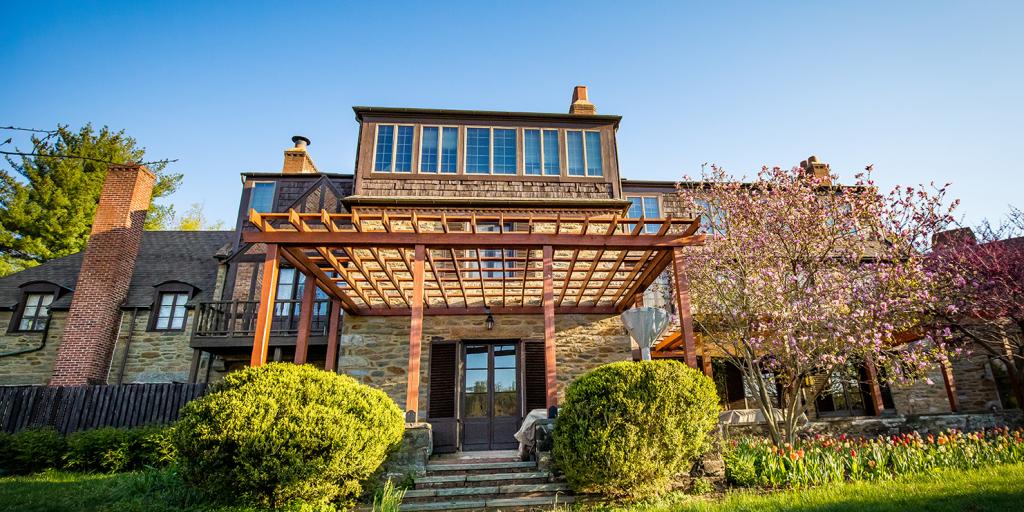

The Templeton Honors College is composed of approximately 120 students, sixteen faculty, and four staff members, including its own Dean. It is one of the seven colleges at Eastern University in St. Davids, Pennsylvania. Undergraduate students are dually enrolled in Templeton, where they complete a unique general education core, and one of the other colleges, where they complete their major and minor degrees.
All faculty, at both Eastern and the Honors College, are required to teach within the historic Christian faith as laid out in the Nicene Creed. As an honors college, we have a more academically demanding set of admission and good-standing requirements than other colleges at Eastern University. In addition, both our curriculum and pedagogy are distinct. They include reading– and writing–intensive socratic seminars organized around great questions and great books, set within a rich community built through a cohort model and highly selective admission.
Unlike some honors colleges, our courses are not simply more difficult versions of courses offered elsewhere in the university. Instead, our courses are utterly unique and offer students a holistic formation in the true, good, beautiful, and holy. Similarly, our students are not merely pre-professionals looking for credentials and practical training that they can trade in for gainful employment after graduation, but instead are rational, moral, and spiritual individuals seeking to order their loves aright though a coherent understanding of themselves, their community, the world, and God. We are looking for academically ambitious students who want to be challenged within a supportive community of like-minded people.
The College’s core values support this vision:
We are committed to fostering love of learning and the truth, in the conviction that learning is one of the primary ways we participate in the good world, by which we enter it with our minds as well as our bodies. Learning increases our competency and comfort in the world, enabling us to indwell it as residents rather than strangers. It harmonizes the mind internally with itself and externally with reality. Learning also prepares us to “keep” God’s good but fallen world like a well-tended garden and to lovingly nurture its human and non-human inhabitants. Ultimately, learning gives us more to praise God with and more desire to do it, enabling each observation, discovery, insight, pleasure, or person to be a conduit of our adoration. And it begins from a posture of affirming receptivity to the world, which fosters wonder, the basic human experience of being astonished or puzzled by something and wanting to discover what it is and why it is the way it is.
We are committed to an education that aims to do more than merely supply students with information, prepare them for a profession, or meet minimum accreditation requirements. Instead, Christian liberal arts education attends to the whole person of the student in order to help them cultivate wisdom and virtue, so they can think, speak, feel, judge, choose, and act in ways that honor God and are conducive to their own flourishing and the flourishing of their neighbor. This includes nurturing an active faith in whatever Christian tradition God has called us, whether Roman Catholic, Orthodox, or Protestant.
We are committed to fostering a love of beauty and the arts, believing that God loves beauty and the arts in all their manifold variety. Creation was beautiful in the beginning. The new creation will be beautiful at the end. In between, we live in a world that carries the potential for great beauty—beauty that leads us to worship the Creator, to anticipate heaven, to see the order and disorder of the world, and beauty that brings refreshing delight to our sometimes weary cities and souls. Liberal education should prepare some students to make the beautiful and every student to preserve, promote, and protect the beautiful, whether present in liturgical, functional, decorative, or high art created for aesthetic contemplation. Liberal education should also enable students to analyze artistic creations aesthetically, morally, and theologically, recognizing the significant role that art has always played in shaping the human experience.
We are committed to cultivating the gifts, passions, and convictions God has given us, using them in both work and play, with diligence, excellence, and delight, for the glory of God and the benefit of his world. Furthermore, we are committed to cultivating obedience to the Word of God and regarding education as one way we are prepared to serve our neighbors in love, humility and generosity.









